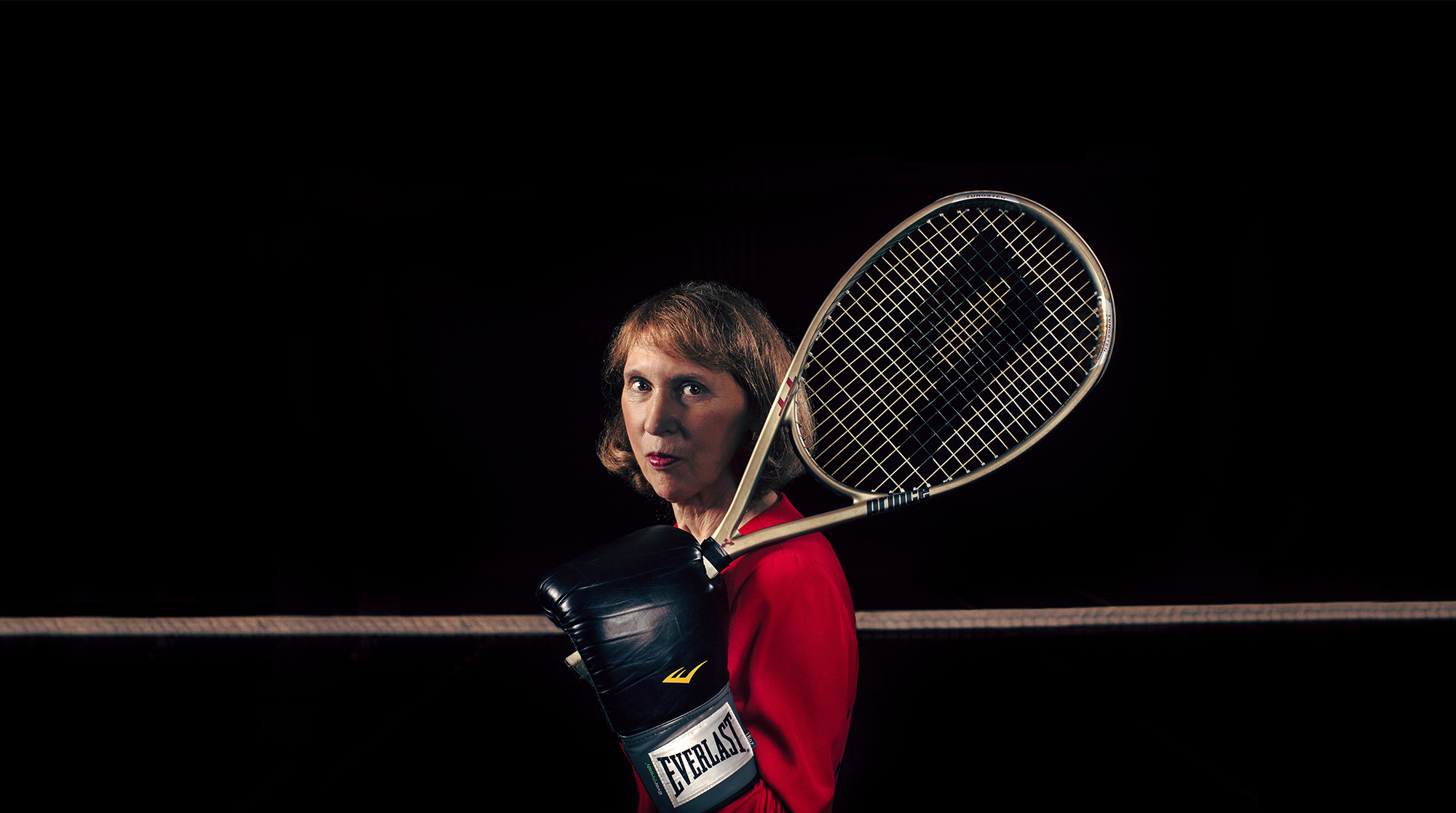

On Sept. 21, 1973, one of the greatest spectacles in American history took place: the “Battle of the Sexes” tennis match that pitted Billie Jean King against self-declared male chauvinist Bobby Riggs. A nationwide television audience and a Houston Astrodome crowd of 30,000 were on hand—including a 22-year-old UW graduate who was playing on the Virginia Slims women’s tennis tour, Trish Bostrom.
This September, nearly 44 years to the day since King trounced Riggs in one of the biggest victories for women’s equality in sports, the Hollywood movie “The Battle of the Sexes” will be released. And Bostrom, who went on to become a Seattle lawyer and serve as president of the UW Alumni Association, will sit down in a comfy theater seat with a box of popcorn and take it all in. Again.
Unlike anything I had ever seen—not Wimbledon, the French Open, the Australian Open or the U.S. Open. For us women, this was not a tennis match. It was about equality. We needed Billie Jean to win. She was playing for all of us.
The Virginia Slims Circuit’s stop was in Houston earlier that week, so all of the major women’s players were there: Chris Evert, Yvonne Goolagong, Rosie Casals. The night of the big match, we rode in a large bus over to the Astrodome, which had a tennis court. It was surreal because the dome was so large, the ceiling so high. That is not always the case for indoor tennis.
We wore these special T-shirts with Billie Jean’s face on it, with the words, “Love Billie, Hate Bobby.” Billie entered the arena sitting in a chair carried by four local college track stars. The crowd of media crushed us as they fought to get near Billie when she arrived. We formed two lines, and as Billie walked down the middle we cheered her on. When Bobby arrived, he presented Billie with flowers.
“For us, this was not a tennis match. It was about equality.”
Trish Bostrom
At the time, the women’s tennis tour was only a couple of years old. Women were not paid anywhere close to what the men’s players were paid. Billie led the effort for equality. I remember at the French Open, if you were a woman and you lost in the first round, you were paid only $300. But it cost $650 in airfare to get there. It just wasn’t fair because men were paid $600 if they lost in the first round.
Billie had been working for equal pay for women for 30 years. But it was this match that got people to pay attention. Billie understood from the beginning how important this was. The rest of us didn’t realize quite how vital it turned out to be. Her victory was an eye-opener for gender equality.
I served on many boards with Billie and other players. Billie had the vision we needed, and the nerve to challenge the status quo. She was the right person at the right time.
Yes, I did. Years after that match, I played against him. He was such a character, a nice guy but a real promoter. When we played, he sat in a chair that he placed on the court. I had to concentrate to place my shots so I wouldn’t be embarrassed. He and Billie went on to become good friends.